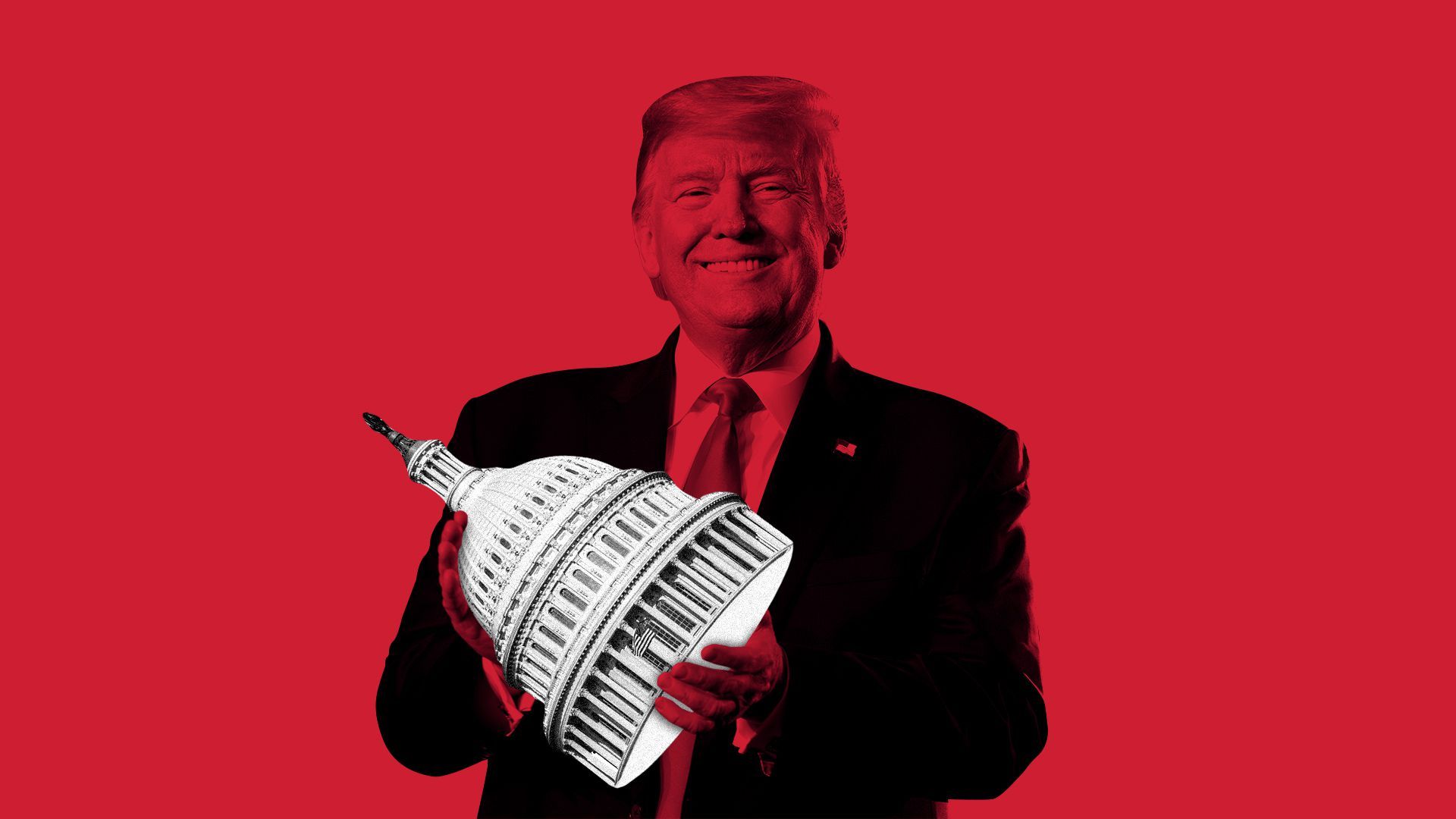Trump's revenge tour has the House in its sights
Add Axios as your preferred source to
see more of our stories on Google.

Illustration: Aïda Amer/Axios. Photo: Saul Loeb/Getty Contributor
In the lead-up to the 2018 midterm elections — buoyed by Republican control of both chambers — President Trump viewed campaigning for the House as a lower-tier priority and instead poured his energy into rallying for the Senate.
But after the GOP reckoning in 2018, and experiencing firsthand how damaging a Democratic-led House has been to him, Trump is now personally invested in helping Republicans regain the majority in November, several people familiar with his thinking tell Axios.
Why it matters: If Trump wins re-election and Republicans are able to hold the Senate and take back the House, Trump will essentially have free rein to do whatever he wants in his second term.
- Winning back the House majority is also the best insurance policy against additional attempts to impeach him.
What we're hearing: House Minority Leader Kevin McCarthy told Axios that Trump is "going to travel for us. If you look at where we’re playing, he'll be going. He's already made that commitment to me."
- Trump has indicated to aides that he is committed to winning back the House this year, a senior administration official tells Axios — largely because McCarthy has told him it's possible.
- A second administration official said Trump wants revenge on Democrats for putting him through "months of hell" with impeachment and a flurry of investigations.
The state of play: Republicans see the 30 Democratic seats in districts Trump won in 2016 as the most winnable.
- "Trump has the ability to easily take a lot of these seats offline," Chris Pack, communications director for the National Republican Campaign Committee, tells Axios. He highlighted these four in particular: Reps. Collin Peterson (Minn.), Anthony Brindisi (N.Y.), Kendra Horn (Okla.), and Joe Cunningham (S.C.).
But, but, but: Even prominent Republicans privately concede that their chances of actually regaining the majority are slim. Also, Trump has an aversion to small arenas and likes to leave the retail politics to Vice President Mike Pence and other surrogates, like Kellyanne Conway and Donald Trump Jr.
- The view among most GOP strategists who spoke to Axios is that the GOP could pick up around 10 congressional seats. Still, winnowing the gap between the parties (Democrats currently have 35 more seats than Republicans) could make a difference.
What they're saying: "He and I talk twice a day. We meet often about these races. He is committed," McCarthy said. "He'll be in these competitive districts and more."
- Trump has also committed to providing more resources to House candidates this cycle, McCarthy said: "Going into districts, getting turnout, showing support, raising capital. Going to our dinners."
- Tim Murtaugh, communications director for the Trump campaign, told Axios the campaign is hopeful that increased turnout among "disengaged voters" will help with House races.
"Nationwide there were 8.8 million people who voted in 2016 and did not vote in 2018. We can say with full confidence that we know who they are, and we will be going after them hard," Murtaugh said.
The backstory: Given Trump's resistance to playing smaller arenas, his advisers are thinking of other ways for Trump to change the playing field.
- A GOP strategist who works on House races told Axios that one of the biggest problems Republicans face is that there's a roughly $16.5 million discrepancy in fundraising between vulnerable Democrat incumbents and their GOP challengers.
- Trump could "have a huge impact in closing the gap in a measurable way, and he can say he was the one that did it," the strategist said.
